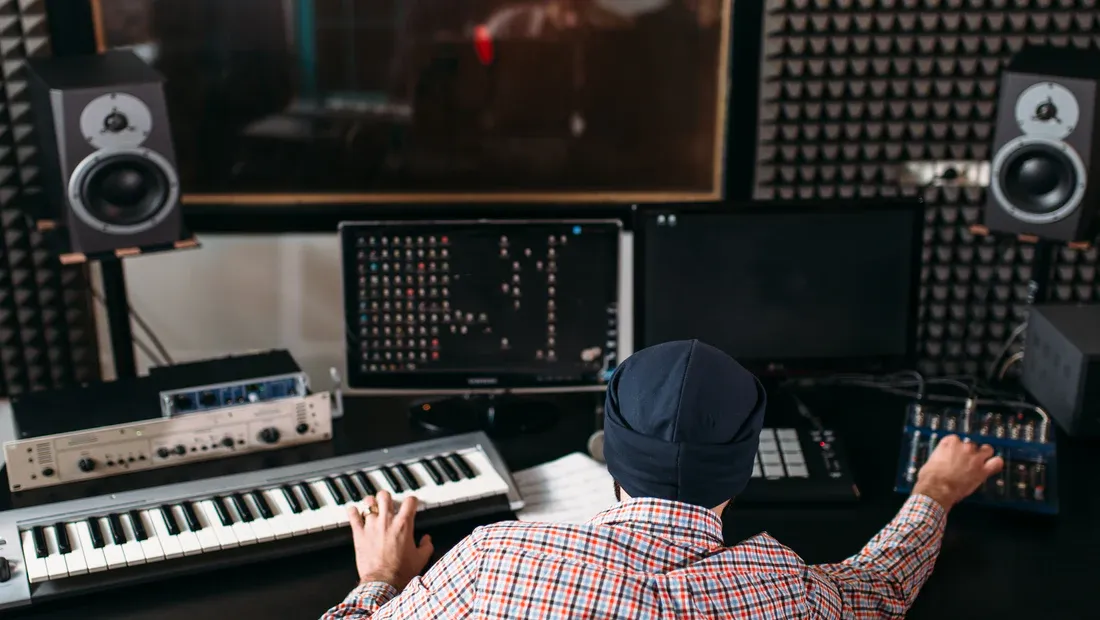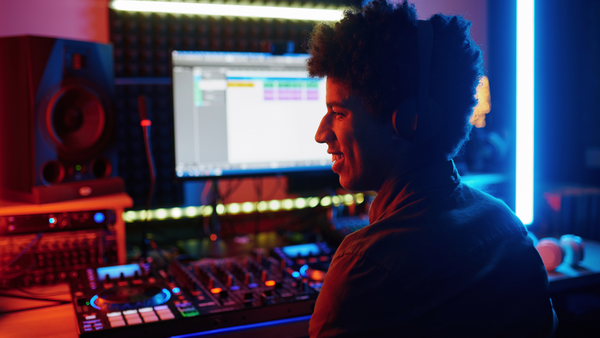Sleep Deprived Behind the Mixing Desk?

Late-night sessions, early morning mixes, and the constant pressure to deliver – let's be honest, sleep often gets sidelined in the life of an audio engineer. But chronic sleep deprivation isn't a badge of honour; it's a recipe for burnout and subpar work. If you're constantly feeling foggy, irritable, and can't seem to nail that perfect EQ curve, it might be time to reassess your relationship with sleep.
Explore Plugin Boutiques store – limited-time deals on your next go-to plugin: www.pluginboutique.com

Why Sleep Matters for Audio Engineers
- Enhanced Focus and Critical Listening: Sleep deprivation makes it harder to concentrate, impacting your ability to focus during long sessions and make those nuanced sonic decisions.
- Improved Creativity: During sleep, your brain consolidates memories and forms new connections. A well-rested mind is better at problem-solving and generating those out-of-the-box sonic ideas.
- Boosted Mood and Stress Reduction: Lack of sleep worsens anxiety and irritability, impacting your interactions with clients and collaborators. A good night's rest promotes emotional resilience, essential in the often-stressful audio world.
- Physical Health: Sleep is vital for your body's repair and immune system function. Long-term sleep deprivation increases the risk of health issues that could sideline your career.

Signs You're Not Getting Enough Sleep
- Constant Fatigue: Feeling tired even after a "full" night's sleep is a red flag.
- Difficulty Concentrating: Trouble focusing on mix details or remembering technical processes could signal a need for more rest.
- Mood Swings and Irritability: Feeling short-tempered or emotionally reactive, especially with clients.
- Increased Errors: Making more mistakes than usual, missing deadlines, or struggling with basic tasks.
- Frequent Illness: A weakened immune system from lack of sleep makes you more susceptible to getting sick.

Tips for Better Sleep as an Audio Engineer
- Set a Sleep Schedule (and Stick to It): Aim for 7-8 hours of sleep per night and try to go to bed and wake up around the same time, even on weekends.
- Create a Relaxing Bedtime Routine: Wind down an hour before bed with activities like reading, a warm bath, or gentle stretches.
- Optimize Your Sleep Environment: Keep your bedroom dark, quiet, and cool. Invest in a good mattress and blackout curtains if needed.
- Limit Screen Time Before Bed: The blue light from devices disrupts melatonin production, making it harder to fall asleep.
- Avoid Caffeine and Alcohol Later in the Day: They can interfere with sleep quality, even if they initially make you feel drowsy.
- Manage Stress: Find healthy stress-management techniques like exercise, meditation, or spending time in nature.

The Bottom Line
Prioritising sleep isn't a luxury for audio engineers; it's an essential tool for producing your best work, staying healthy, and building a sustainable career. If you're struggling with chronic sleep deprivation, don't hesitate to seek help from your doctor.
Remember: A well-rested engineer is a sharper, more creative, and ultimately more successful engineer. Make sleep your secret weapon in the studio!

Rich Steve Beck is the creator and owner of Produce Mix Fix Conquer/We Are PMFC and PMFC Atlas. As well as being a Mastering Engineer, Blogger, Podcast Interviewer and Community Leader, Rich has 20 years + experience in finance, insurance, account management and online marketing. This will be a regular series supporting new up and coming audio engineers and producers as well as hopefully throwing around some fresh ideas to industry veterans to help assist sustainability. Cherry pick what is helpful, leave behind what you don't need. Good luck on your audio adventures!





